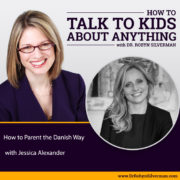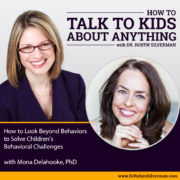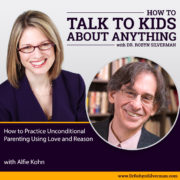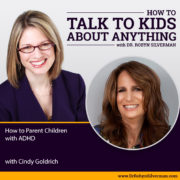How to Parent the Danish Way with Jessica Alexander
Special guest: Jessica Alexander. Denmark has been voted as having the happiest people in the world by the OECD (Organization for Economic Cooperation and Development) almost every year since 1973. That’s more than 40 years of happiness! It begs the question—is it the parenting? I mean, is there a Danish Way of parenting? It turns out, there is, and while the Danish Way of parenting is not the only reason Danes are the happiest, it does play a very important role—and the success of it all seems to be tied to the ways they educate children far beyond academics—focusing on play, empathy and social skills. It’s important to delve into it, I hope you would agree, since happy kids tend to grow up to be happy adults who raise happy kids—and the seasons go ‘round and round again. And while in the United States and in other areas of the world, we are seeing an increase of anti-depressants, suicides among young people and mental health diagnoses, as well as a great deal of competition between parents and we have a lot to learn from the Danes. Best-selling Author, Journalist, Danish Parenting Expert & Cultural Researcher, Jessica Alexander’s book “The Danish Way of Parenting: What the Happiest People in the World Know about Raising Confident Capable Kids” has been published in over 25 countries. Her work has been featured in TIME, The Wall Street Journal, Salon, Huffington Post, NPR, NY Times, and many more. She regularly does talks and workshops for parents, schools and organizations like Google, The Women’s Network of the United Nations, The World Parenting Forum and many more. She has also worked as a spokesperson for LEGO on the Power of play.




